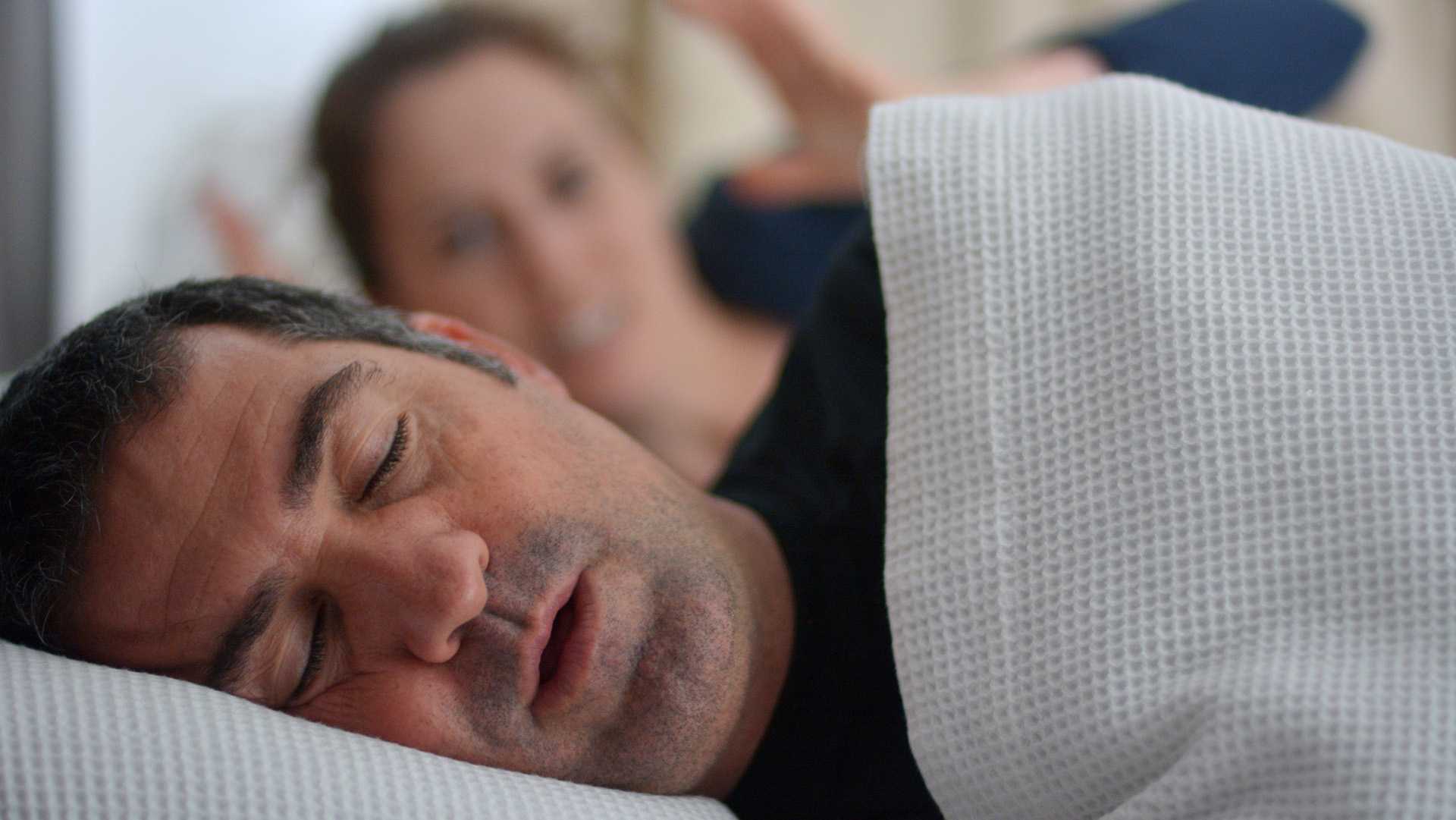Learn how braces might be the key to achieving a restful night’s sleep and how the question, “Can braces help with sleep apnea?” can be answered with promising evidence.






Save $250 off braces or Invisalign!*
Schedule your appointment online.
For many people experiencing sleep apnea, the potential benefits of orthodontic treatments, such as braces, may be overlooked. Sleep apnea, a disorder marked by periodic interruptions in breathing during sleep, can lead to a host of health concerns including persistent fatigue and cardiovascular issues. Exploring how braces can affect jaw and teeth alignment might reveal a path to better sleep quality. This article delves into the connection between orthodontics and sleep apnea, explaining how certain treatments can offer relief and promote overall well-being. Learn how braces might be the key to achieving a restful night’s sleep and how the question, “Can braces help with sleep apnea?” can be answered with promising evidence.
Understanding Sleep Apnea
Sleep apnea is a significant sleep disorder marked by repeated breathing interruptions during sleep. The primary forms include obstructive sleep apnea (OSA), central sleep apnea, and complex sleep apnea syndrome. OSA arises when throat muscles overly relax, blocking the airway, whereas central sleep apnea occurs when the brain doesn’t send correct signals to breathing muscles. Complex sleep apnea syndrome combines elements of both conditions.
Various factors contribute to sleep apnea, such as excess weight, age, and anatomical features like a thick neck or enlarged tonsils. Lifestyle habits, including smoking and alcohol use, also elevate risk levels. Moreover, conditions like asthma, nasal congestion, and family history are crucial in predisposing individuals to this disorder.
Unchecked, sleep apnea can severely affect health, causing complications like daytime fatigue, concentration issues, and mood changes that disrupt daily life. It’s also linked to serious health risks, including cardiovascular disease, high blood pressure, and diabetes. Recognizing symptoms and pursuing appropriate treatments is vital for enhancing sleep quality and overall health. This is where treatments like orthodontics can play a crucial role in managing sleep apnea symptoms.
The Connection Between Orthodontics and Sleep Apnea
Dental alignment is crucial for maintaining proper airway function. Misaligned teeth can lead to structural issues in the mouth that hinder airflow during sleep. This is especially crucial for those with obstructive sleep apnea (OSA), a condition in which throat muscles sporadically relax and block the airway during sleep. Jaw positioning plays a significant role; an improperly aligned jaw can cause a narrower airway, raising the risk of breathing interruptions at night.
The relationship between misaligned teeth and sleep breathing issues is significant. Misaligned teeth and jaws can cause a chain reaction of complications, including overbites or underbites, which worsen airway obstruction. Correcting these alignment issues with orthodontic treatments, such as braces, can improve airway function, resulting in enhanced breathing patterns during sleep. For those wondering, can braces help with sleep apnea? The answer often lies in the successful correction of these misalignments.
Incorporating orthodontic solutions to treat OSA can significantly enhance sleep quality and health. Understanding the connection between dental alignment and airway function is crucial for anyone seeking effective ways to manage sleep apnea symptoms.
Orthodontic Treatments for Sleep Apnea
Orthodontic treatments such as braces and aligners are gaining recognition for their potential benefits in alleviating sleep apnea symptoms. These appliances work by repositioning teeth and the jaw, which can enhance airway space. Braces, for instance, can correct misalignments, ensuring the airway remains unobstructed during sleep. Similarly, aligners provide a subtle option for gradually moving teeth into optimal positions, promoting better airflow. For those questioning, does Invisalign help with snoring? Aligners can indeed play a role in reducing snoring by improving the airway.
By creating more space in the oral cavity, orthodontic treatments can help minimize sleep apnea severity, leading to more restful sleep. Patients often report noticeable improvements in both breathing patterns and sleep quality after undergoing these treatments.
Consider a case where a young adult with moderate obstructive sleep apnea experienced a significant reduction in apneic episodes following orthodontic intervention. After completing braces treatment, the patient reported clearer air passages during sleep and increased daytime energy. Another success story involved an adult who opted for clear aligners to address aesthetic concerns and sleep apnea. Post-treatment, assessments showed marked improvement in airway function, substantially reducing sleep disruptions.
These examples underscore how orthodontic appliances can be instrumental in managing sleep apnea, offering hope to those seeking effective solutions for improved sleep.
Benefits of Orthodontic Treatment for Sleep Apnea
Orthodontic treatment can play a pivotal role in alleviating sleep apnea, offering numerous benefits that enhance both sleep quality and overall health. A primary advantage is improved sleep quality and reduced snoring. Proper alignment of the teeth and jaw can open up the airway, facilitating easier breathing during sleep. This can lead to deeper, uninterrupted sleep and a reduction in snoring, benefiting not only the individual but also their sleeping partner. Does Invisalign help with snoring? Aligners can indeed contribute to reduced snoring by improving dental alignment.
Beyond better sleep, orthodontic treatments promote overall oral health. Misaligned teeth can cause various dental problems, including gum disease and tooth decay. By addressing these misalignments, orthodontics supports a healthier oral environment, reducing risks associated with untreated sleep apnea, such as teeth grinding or jaw pain.
Moreover, addressing sleep apnea through orthodontics can result in long-term health benefits. Chronic sleep apnea is linked to numerous serious health conditions, including cardiovascular issues, diabetes, and even depression. By tackling the root cause of sleep apnea, orthodontic treatment not only improves sleep but also contributes to a healthier lifestyle overall. This holistic approach underscores the importance of professional orthodontic care to treat OSA effectively.
Schedule Your Consultation Today
By scheduling a consultation with a qualified orthodontist, you can expect a comprehensive evaluation of your oral health and its connection to sleep apnea. An experienced team will conduct a thorough assessment, which may include imaging and a review of your medical history. They’ll discuss your symptoms and goals, providing you with the information necessary to understand how braces might enhance your condition.
To prepare for your visit, it’s beneficial to compile any relevant medical records, including details about your sleep apnea diagnosis and previous treatments. Being ready to discuss your sleep patterns and other symptoms can also enhance the consultation experience. This preparation allows the orthodontist to tailor their approach to your unique needs.
The importance of personalized treatment plans cannot be overstated. Each patient is different, and what works for one may not be effective for another. Professional orthodontists pride themselves on crafting customized solutions that address specific orthodontic and health requirements. By understanding your individual situation, they can recommend the most suitable treatment options, including whether braces could be a beneficial solution for your sleep apnea.





